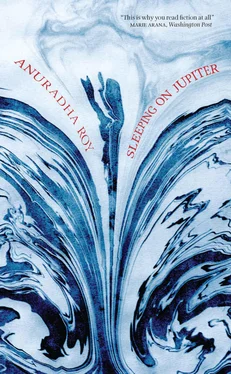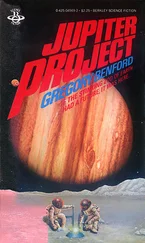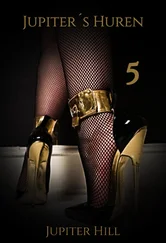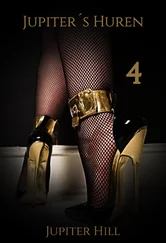Latika was still urging them to stop the car and get off at the bazaar. “Let’s, please!” she begged them like a child. “We can take rickshaws back to the hotel, it’s only ten minutes away. It’s such a lovely evening.” Vidya drew breath to snap at her, then counted, as she had taught herself, a slow fifteen. “Fine,” she said after her pause. “Fine, we’ll do as you want.”
They were in a dilemma about the driver’s tip and held urgent whispered consultations. How did one deal with a tip when he was not really a driver but the manager of the hotel? It was difficult conferring when he was inches away, listening. Ultimately, Latika whispered, “Gift, gift,” and they got off. Now that there was a purpose to the market trip, Vidya did not feel as irascible, and after a long cold gulp of a fizzy drink her anxieties over Suraj and the electricity bill receded.
*
After leaving his uncle’s house for the last time, Badal drove out of town towards the Sun Temple, down Marine Road, shaded by the casuarina trees that flanked it. It was a lonely stretch, close neither to Jarmuli nor to the huddles of earth and straw that made up the dismal villages which lived off the temple. At one point, where he sighted an opening in the foliage and a pale stretch of sand, he abandoned his scooter and walked down to the shore. White-topped rollers came crashing in, a wind had risen in the orange sky.
Why had Raghu shown not a sign — not the tiniest flicker — that their afternoon by the boat had meant something to him as well? The cruelty of his indifference opened an abyss inside him. It wasn’t indifference alone, there was ridicule as well. He could not stop himself thinking about it. He reworked every second of their togetherness into separate images, as in a slide show, as though this would keep him from losing them. He wanted to throw himself into a thorn bush, cut himself with a razor, smash his toes with a stone — anything to fight pain with pain. He stood by the sea and the song Johnny Toppo had been droning that morning played in his head:
Where is my mud-brown hut?
My young guava tree?
Where’s the black cow that came
When I called her to me?
Where is that pretty stream
As blue as the pure blue skies?
The only streams I know now
Flow from my two sad eyes.
He sat on the sand, head in his hands, clutching his hair, trying to drive the song and his headache away. Once he had asked Johnny Toppo, “Can’t you sing a happy song? Why are all your songs so gloomy?” And Johnny Toppo had said, “They aren’t sad for me. They’re all I have left of my world. I’ve no cameras like these tourists — clicking all the time. Smile, smile! Click!” He had tapped his forehead. “I keep it all here. It makes me happy to remember.”
“So what was your world?” Badal had asked him. “Tell me, why don’t you?” Johnny Toppo had turned away. After a while he had said, “I sell tea, I was born ten years after the great earthquake in Bihar, I live in a tarpaulin shack, I have nobody, nothing to worry about, nothing to lose. I’m happy I’m above the water and below the sky and I’ve got beeris to smoke and a half-bottle to drink. I know from the songs in my head that I used to have another life long ago. That’s all there is to say about me, Babu.”
In the far distance, across the water, a line of lights glimmered. Fishing trawlers, living their secret lives. The lights dipped, disappeared, came back. Their nets went deep down to the floor of the sea. They would be at work all night, trapping and killing thousands of gasping creatures.
Badal had had a trick since childhood, of sitting by the sea with his back to it. He would position himself close enough for the waves to wet him with spray, knowing that if a big breaker came it might sweep him out to sea. He knew all about waves and currents, about riptides formed by winds hundreds of miles away that sucked swimmers under or sluiced away people standing on the shore. If you fought the current and tried swimming back against it, you would drown. The thing to do was not to oppose it but to fool it and swim away from it, in a diagonal. Badal had seen the washed up corpses of those who had battled the currents and lost. But he still sat with his back to the water, as if at the edge of a cliff, playing with death.
A wave crashed onto the beach and he moved away from long instinct. The nearby waves told him which ones would come further inland than the rest. Still, this one had managed to wet the bottom half of his clothes. Two more waves followed, lapping at him. At times he wanted to stop their rush and roar, freeze them mid-charge for a moment’s stillness. To know how absolute silence sounded.
He grew tired of his game and turned to sit facing the sea. He had grown up beside it, yet its endlessness was a thing his mind could not come to grips with. This coast he was sitting on — going towards the Dolphin Hotel, the Swirling Sea Hotel, past Vishnupada Road and the Vishnu temple and beyond it to Grand Road and the market and Matri Mandir and the Kanakot highway — went onward, curving voluptuously past the tigers and honeycombs of the Sundarbans towards Burma, and downward towards Pondicherry, where the same water flowed, and the same winds that blew here blew there too, pushing that water into waves that travelled towards the southernmost tip of this tongue-shaped country before they curved upward again on their journey past Bombay and Goa to Karachi and Iran, Arabia and Egypt — names from dreams and textbooks.
Jarmuli radiated outward to Asia, the world, the solar system, the universe — it was every child’s incantation in school, and even now, when he wanted to be out of the reach of his aunt and uncle, he dreamed of living on Jupiter and sleeping under its many moons. When his teacher had told their class it had sixteen moons he had wanted to ask her if this meant that there was a full moon on Jupiter every night. Or were there crescent moons and half moons and round moons all at once in that other sky?
If he put his feet into the water here at the beach in Jarmuli, he was dipping them in the universe. If he could only step into the sea, swim and swim, and land in Zanzibar. He knew nothing about it, had never wanted to know anything about it beyond its place in the school atlas, merely loved the sound of its name: Zanzibar.
Badal rose, not knowing where to go. He trudged to his scooter. Where did Johnny Toppo live, he wondered. In all these years of drinking his tea he had never found that out — where was that tarpaulin shack?
Where would he go now? What was he to do?
He was fiddling with the key to his scooter when he heard a woman’s voice.
“Whose is that camel?” the woman was saying. “I’m going to untie it.”
Badal saw the tasselled leather bands on the woman’s ankle, the coloured braids in her hair. That girl in the wrong clothes at the temple. She was still in strange clothes, he saw, an overlarge kurta whose sleeves appeared to have been hacked off. It was being whipped around her by the breeze. Billowing pyjamas. Red sneakers. But she had made an effort: he had to admit these were Indian clothes, after a fashion.
The girl was pointing to a forlorn, barrel-chested camel tied to a post by a shuttered souvenir stall. Its hump had collapsed, its eyes were rheumy. Its coat was moth-eaten and its ribs showed through. The girl stroked the camel’s side. She looked at Badal as if she had had a brilliant idea and said, “Shall we untie it? Let’s!”
“Where will it go?” he said. “It has nowhere to go. And what will it eat?”
“It can be free for some time. Here it’ll live without ever knowing anything else. No?”
Was she merely whimsical, like many of the foreigners he encountered? Or was she addled enough to think the camel had emotions and spent all its life yearning for freedom? He had always seen camels in Jarmuli, brought there from thousands of miles away for tourists to ride on the beach. They were replaced by others when they dropped dead. They were so timeless in their solitude it had never crossed his mind before how far away from their natural homes these animals were.
Читать дальше












